|
Getting your Trinity Audio player ready...
|
In my ongoing series of columns about American history, I thought I’d address some facts about “the Civil War.” These scribblings have nothing to do with the fact my latest book, Where Have All the Cowboys Gone? Madness, Mayhem, and the Making of America, is available on Amazon, or that books make great Christmas gifts.
Obviously, “the Civil War” is an extraordinarily complex and sensitive subject — but I really don’t know why, because the facts aren’t that obtuse … they just lie there, as facts are wont to do.
Right from the jump, let’s briefly note the preferred name, which is “the Civil War.” A civil war is a war that breaks out in a nation, when two opposing factions are battling over who will control and govern the nation — the whole nation. Truth is, the Southern States had no desire to overthrow the federal government. In fact, it was the opposite … they wanted nothing to do with governing the United States of America. They wanted to go their own way … and be left alone.
It’s a small thing, but telling. You can call it, “The War Between the States, or “The War For Southern Independence,” but it wasn’t a civil war.
The biggest debates are these:
Did the North fight the war to free the slaves?
Did the South fight the war to continue the practice of slavery?
These a tremendously complex questions, and before analyzing them, one must ask these questions:
Who benefited from slavery?
Who actually “fought” the war?

***
As is always the case with wars, the War Between the States began because rich men – north and south of Richmond – made it happen. The war began because threats to their wealth and power were at stake. Ten-percenters don’t stand idle when such threats begin to unfold.
The one-percenters in the plantation-owning South viewed themselves as royalty, and their arrogance knew no bounds. They made their riches from slave labor, as slaves grew and harvested their rice, cotton, and indigo, and chopped then hauled timber to the ports — where the materials were shipped north.
On the other side of the same coin, the one-percenters in the urban and manufacturing North made their riches on the raw materials made possible by slave labor.
Slaves made them both rich, and both owed their empires to the existence of this inhumane practice.
In the decades leading up to the War, a few things were indisputably true:
First, the South’s payment of tariffs made up somewhere in the neighborhood of 80 percent of the federal budget.
Second, since the South was agrarian and so far spread out, there wasn’t that much for Congress to “improve” down here, and the population was tiny when compared to the North … so the overwhelming majority of that tariff money was invested in Northern infrastructure.
Third, not a single law was put forward by anyone in the United States Congress in the 1850’s to improve the lives of slaves, much less free them.
Why?
Reason one: Congress has always answered first and foremost to the one-percenters, and the one-percenters, North and South, wanted and needed slavery to continue.
(Click to view)
Reason two: 95 percent of Americans in the 1850s were racist as hell. Even the tiny percentage who wanted slaves freed viewed them as “an inferior species,” as Abraham Lincoln once noted. Although some vocal-and-correct abolitionists would arise and gain widespread press coverage in the final years before the War … no one cared. For most Americans, life sucked. Really sucked. Worrying about slavery didn’t rank high on the list of discussion topics when the family gathered around the dinner table to feast on bread and gruel.
So … almost no Americans cared about the issue, but come the 1860s, America’s upper ten-percenters became bitterly divided.
The Southern upper-class was enraged about how much of their wealth was getting siphoned off via tariffs to make life better for Yankees, and how this “foreign government” was grabbing too much power out of their states. Talk of secession began, as they believed the right to peacefully leave the union was constitutionally guaranteed.
The Northern upper-class couldn’t have this. If the Southern States seceded, 80 percent of the federal budget would disappear, and a lack of cheap access to slave-produced raw goods would wreck their manufacturing model. Talk of the illegality of secession began, with their beliefs based on secession being unconstitutional.
For those with an acute sense of irony, please note you can see these two sides squaring off for the very same reasons America revolted against England.
Anyway, it would be silly to say slavery wasn’t part of the reason why the South fought the War.
But for the Southern aristocrats, the issue wasn’t slaves – it was “what’s right.” Like the American colonists, they thought, “This is my stuff and my life. I built this. My family has lived this way for over 100 years. I’m tired of people in some faraway place telling me what I can and can’t do, all the while taxing the hell out of me. I don’t need this — our region would be better off on its own. It’s time to leave.”
The Northern upper-class, like the British, said, “Whoa there, Cowboy. This is one team, and we were designed to be that. Your membership in this pact has offered you tremendous benefits. You agreed to the rules, and you can’t quit just because you feel like it. It’s in the contract.”
Hmmm … both sides kind of have a point, don’t they? I mean, England had a point, no? And the Colonists had a point, no?
It’s easy to say, “No, the South didn’t have a point, because they were benefiting from slavery.”
Both sides were.
***
Lincoln’s election lit the fuse between the upper classes. Very little was known about him in Dixie, and the Southern rich were terrified. Who is this guy? What’s he going to do? Is he going to take away our sovereign rates as states? Tell us we can’t own slaves? Tax us even more? Invade us?
Something happened around this time that happened as well during the time around the American Revolution: America found herself with some very brilliant men in leadership — Jefferson, et al. — who knew the economic advantages that would come with being free from England’s “tyranny.” As a result, they developed the slogan “no taxation without representation” as a reason to revolt.
The average American colonist wouldn’t know what “no taxation without representation” meant if it was tattooed on his forehead—but he did know what “You ain’t the boss of me” meant.
The same thing was true in the South in the days leading up to war. A group of men called Fire Eaters saw the economic benefits of secession, and trumpeted long and loud about how the Federal government was England-level tyrannical. They insisted the South was getting screwed, and the Federal government wanted to upend their very way of life.
A-ha! The South was fighting to maintain slavery! Well, given that only 20 percent of Southerners owned slaves, one could well surmise that 20 percent didn’t want slavery to end. But the 20 percent of the North that qualified as upper class didn’t want slavery to end either, as they were afraid their worlds would collapse as well.
The rich men, north and south of Richmond, were peas in a pod.
With Lincoln in the White House, those in favor of secession screamed from the rooftops that he was the ultimate symbol of a tyrannical federal government. He wasn’t — not at that point, anyway — but the South seceded nonetheless (with the Palmetto State leading the way).
Secession was a stupid overreaction, and if the Southern upper-class and state governments had simply waited, they’d have seen Lincoln’s goal was (like most politicians) to maintain the status quo. Like every American, he was (benignly?) racist – and wanted what was best for the greatest number of white males.
“I am not, nor ever have been in favor of bringing about in any way the social and political equality of the white and black races,” Lincoln said prior to assuming the presidency.
Regardless, the South announced, “Bye now … and would you Yankees please remove all your military troops — we’re an entirely new nation now. It’s all perfectly legal — just check the contract.”
Lincoln didn’t want the South to leave, and he read the contract from a different perspective. As a result, he essentially ignored the South’s proclamation it was “a new country,” and continued business as usual. A ship went to resupply Fort Sumter, manned by Federal troops, and Southern leaders viewed this as an act of war — they even considered the Federal troops failure to evacuate For Sumter as an act of war.
At 4:30 a.m. on April 12, 1861, Lt. Henry Saxon Farley set the fuse on a 10-inch mortar round – a signal shot that exploded in the air above Fort Sumter, alerting 43 guns surrounding the fort to commence their bombardment.
(Click to view)
For a war to be fought, there must be a critical mass of men who believe “the narrative” enough to sign up, willing to die for their cause. So committed were American men to the narrative behind WWII, our nation saw thousands of young men kill themselves when they were medically disqualified from service.
But those ideals were not widespread in the 1860s … life was local, occasionally regional. For the most part, laboring-class men’s ideals centered on the concept, “It would be ideal if none of my children die tomorrow.”
So let’s take a look at the men who’d be needed to “free the slaves” or, conversely, to “keep the slaves in chains.”
Northern Joe Sixpack — This guy works in a factory, has a first-grade education, and his life sucks. He and his family live in a one-room “apartment,” and the very best his entire life will offer him is subsistence food for his family. He has never seen a black person, but his life sucks too much to give it much thought. A uniform, boots, and an actual paycheck he can send back to his family sounds like a great improvement. (Oh, and the fact he was initially drafted pretty much made his wants and needs moot).
Southern Joe Sixpack — This guy rents a little land and owns a mule, and his life sucks. His family lives in a one room cabin he built himself. He’s never owned a slave, and never seen a Yankee, but the whisper-stream is saying that the Yankees “are gonna come down here take over the South.” His response? “Ain’t nobody telling me how to live my life.”
Northern Joe Emptycan — This guy barely speaks English, and doesn’t give a crap about slavery, one way or the other — he just wants to avoid dying of disease. When he finds out Army enlistees are fed moldy bread and worm-filled meat, he sprints to the recruiting office to sign up. For many, sprinting to the recruiting office wasn’t needed. They walked down the gangway of their arriving ship, and were given their boots, a uniform, and meals. “Holy crap!” they likely thought. “This truly is the land of opportunity! I’ve already got a job!”
Southern Joe Emptycan — Born and raised in the sort of rural poverty that breeds true meanness, his guy survives day to day, and his life really, really sucks. He too has never seen a slave because he’s never been to a city or on a plantation, but hears they live a more secure and better-fed life than he—and only by looking down on them can he take any comfort in their presence. Being a Southerner, he grew up using his fists, and personal honor is a huge deal. The recruiter comes riding along, and says, ‘Them Mason brothers two acres over is joinin’. You chicken, or you wanna fight?”
In the end, most Northerners served because they were drafted, or because joining the army sounded a hell of a lot better than living in their current circumstances. (No one had any idea the War would become the bloodbath it did).
Most Southerners served due to pride, peer-pressure and a death-before-dishonor approach to living life on their own terms.
As every combat veteran will tell you, why a war is fought goes out the window the moment you see a friend wounded or killed. From that moment forward, you have an unbreakable bound of shared suffering – because now some bastard has killed a brother you love with all your heart. All that matters from then on is killing the men who killed your friend.
Given the horrific and deadly nature of the War Between the States, seeing a friend die happened very early on … so both sides were soon consumed by blood-lust.
(Click to view)
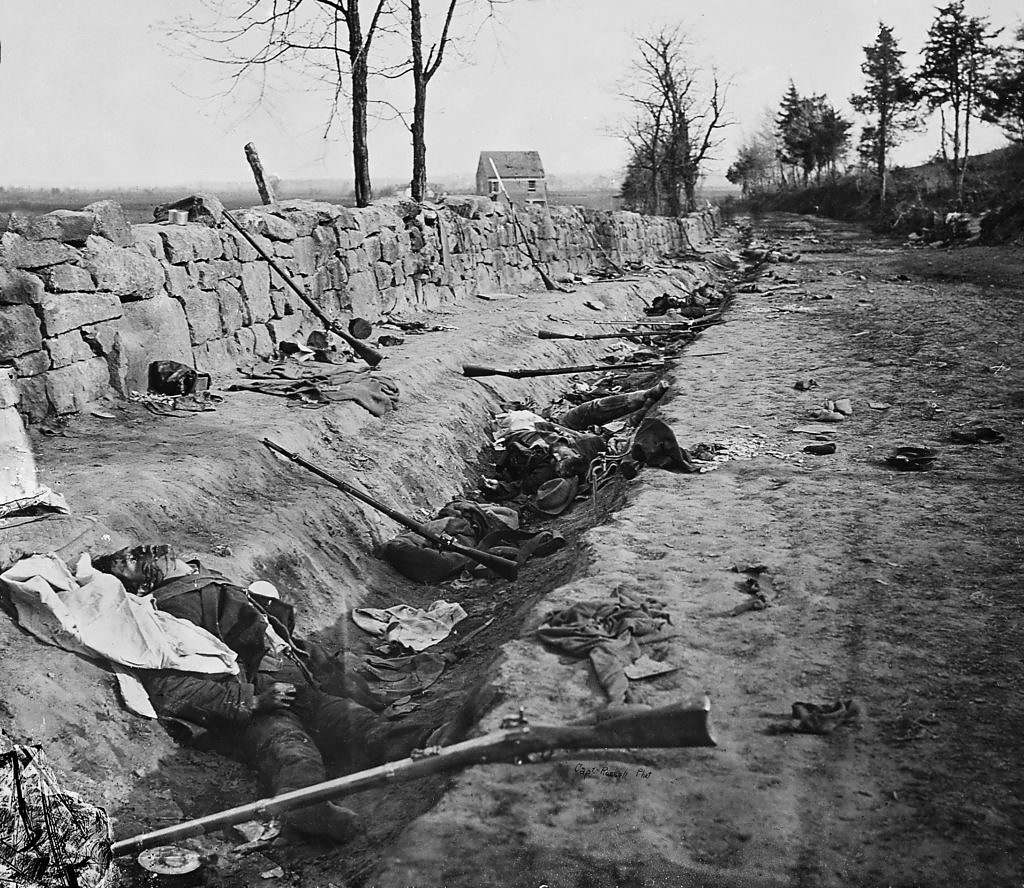
Northern soldiers began fighting a war to avenge those deaths, as did Southerners.
Southerners, however, were being invaded — and thus were defending their homeland and families. This extra motivation (and fury) is likely the reason the South came within a hair of winning the war, despite being ridiculously outmanned and outgunned, with a budget a fraction of the Union army.
Now, let’s ask again: Was the War fought to free the slaves? Or to keep slavery in tact?
Does anyone think Confederate Emptycans marched barefoot for hundreds of miles and risked death to keep slaves in chains? That tens of thousands of Northern Emptycans furiously engaged in frontal assaults to be butchered by Confederates to free the slaves?
Of course not.
Before issuing his famed Emancipation Proclamation on January 1, 1863, Lincoln wrote, “If I could save the Union without freeing any slave, I would do it, and if I could save it by freeing all the slaves, I would do it, and if I could save it by freeing some and leaving others alone, I would also do that.”
By his own admission, Lincoln didn’t care about freeing slaves … he wanted to preserve the Union. Only when he came to believe “freeing the slaves” would help preserve the Union did he decide to do so.
It could be said that technically the War shifted from a war for preservation to a war for emancipation on January 1, 1863 … but does anyone really think this proclamation flipped a Now-We-Care-About-Slaves switch in either army?
Does anyone think word of the Emancipation Proclamation trickled down to the Northern Emptycans in the trenches — exhausted, hungry, and in ill health — and caused them to proclaim, “Hell yes! Now we’re fighting to free the slaves, Boys! We gotta really start fighting!”
Most likely, the only thing the proclamation changed among the men in the Southern ranks was a rise in the thinking, “We were right! They are tyrants! What’s coming next?” (If you’re a veteran, you can only imagine what craziness the men began discussing as “what might be next.”)
***
***
As all wars do, this one ended. The good things that came from the horror of the War Between the States was the freeing of all slaves, and the preservation of the Union. Yes, slavery was on the way out, but for an enslaved human, “on the way out” isn’t nearly fast enough. And if we’d become two nations, we’d never have achieved what we have as one.
The War Between the States was started because rich men north and south of Richmond were panicked to preserve their wealth and power. It was fought by the legions for different reasons. Southern soldiers were motivated by the defense of their homeland. Union soldiers were motivated by a pride that said, “We ain’t gonna get whipped by a ragtag bunch of white trash.”
The War happened. Hundreds of thousands of men died. The South was destroyed financially for 100 years. As always, history is written by the victors, so Northern historians were able to work backwards and rewrite the narrative: Northern soldiers fought valiantly to free the slaves, and the Southern soldiers fought defiantly to keep them in chains.
Neither is true, of course, and the retelling of that version has caused a cultural division in our nation ever since. Many Northerners still view Southerners as backwards and racist, and many Southerners still view Northerners as untrustworthy and without honor.
Wouldn’t it have been better for the Republic if the real story was reported? The reality that the little guys were thrown into the meat grinder to benefit the rich guys? And we learned to ask, “If our leaders would do that to those they lead, what else are they capable of? Is there any end to their greed and lust for power?”
As is the overarching question in my book, I ask what lessons did we the people learn? What did we learn about our leaders, and what did they learn about us?
Someone learned a lot. And it wasn’t the little guys.
***
ABOUT THE AUTHOR…
Prioleau Alexander is a freelance writer, focusing mostly on politics and non-fiction humor. He is an international advocate for literacy and learning, and shows his commitment to the cause by reminding everyone that books make great gifts. He is the author of four books: ‘You Want Fries With That?,’ ‘Dispatches Along the Way,’ ‘Where Have All The Cowboys Gone?‘ and ‘They Don’t Call It The Submission Process For Nothing.’
***
WANNA SOUND OFF?
Got something you’d like to say in response to one of our articles? Or an issue you’d like to address proactively? We have an open microphone policy! Submit your letter to the editor (or guest column) via email HERE. Got a tip for a story? CLICK HERE. Got a technical question or a glitch to report? CLICK HERE.
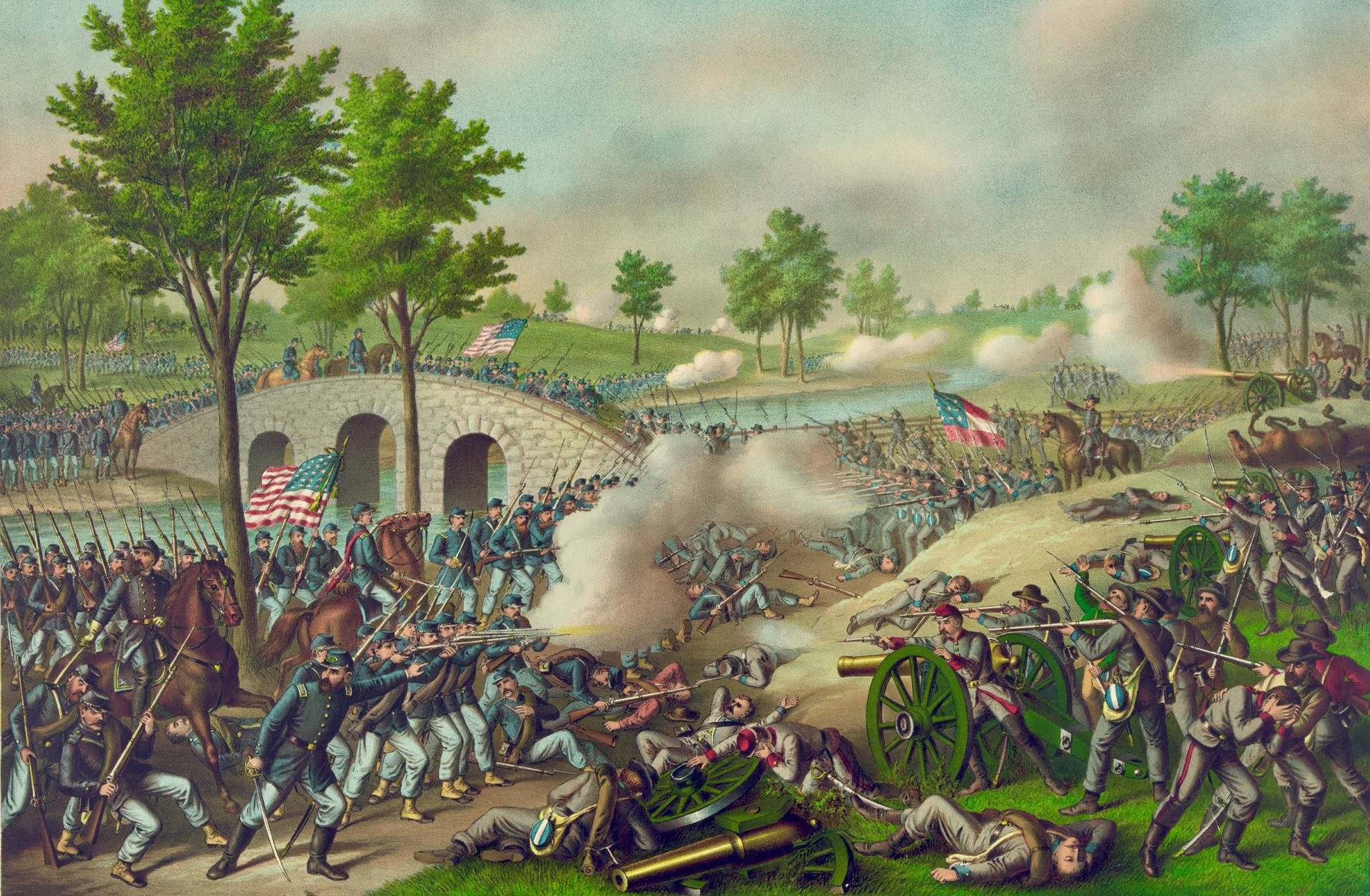
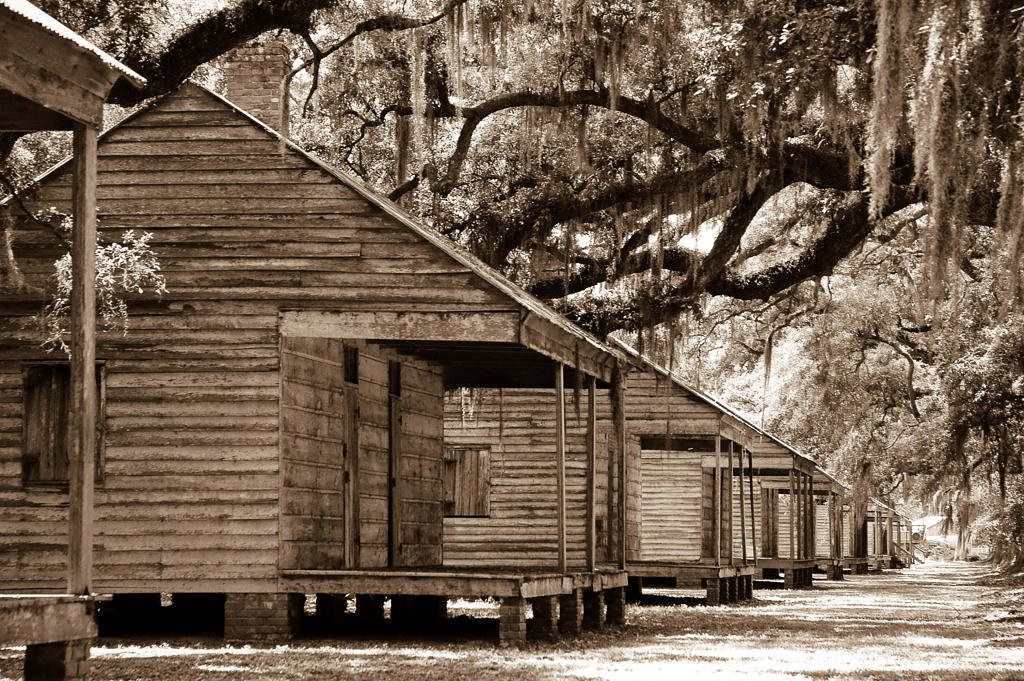

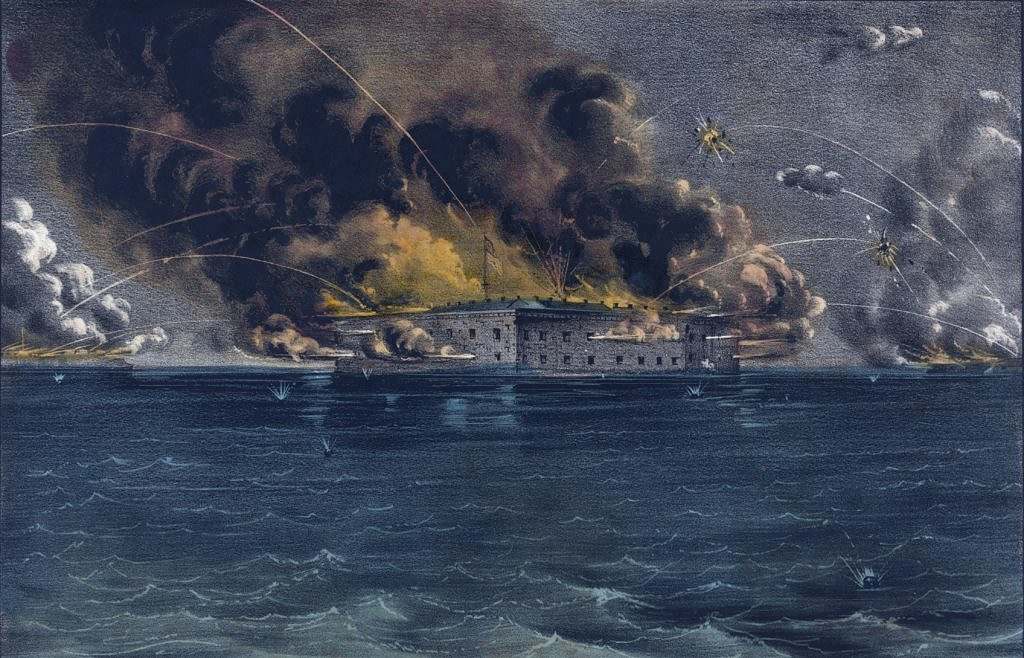
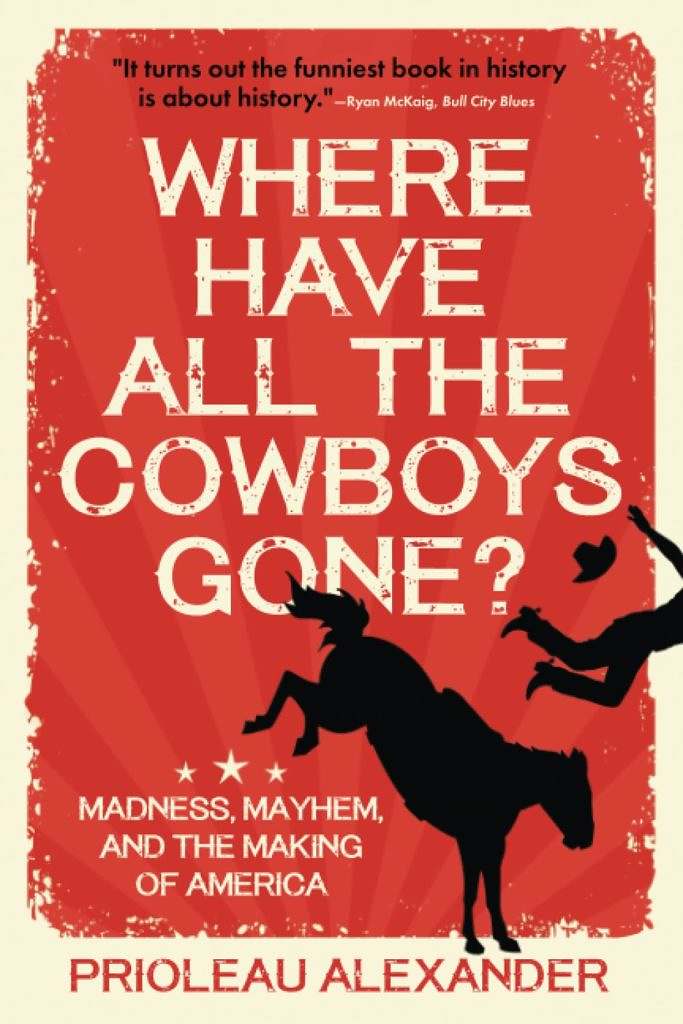


18 comments
Interesting piece. Pleasantly stereotypical in many instances, but some good points. Many might disagree with your thesis statement that “The War Between the States began because rich men, north and south of Richmond, made it happen.” You might be giving the wealthy far too much credit, cf., the charge that arms dealers helped provoke World War One . And young men don’t give themselves up to horrible deaths over simply better food and a better life., and certainly not 0ver such an arcane issue (at least to many) as a tariff. In the end what you have is the moral issue of slavery (and moral issues cannot be compromised, e.g., abortion) and the cause so eloquently stated by Lincoln at Gettysburg, that “government of the people, by the people, and for the people should not perish from the earth.” I did enjoy your thoughts.
Alternative facts.
No kidding. If the Civil War was not about lazy Southern plantation owners desperate to not lose their free labor (and way more nefarious sexual reasons). Then:
Why are Republicans trying their hardest to remove teaching about slavery from public school history curriculums?
While at the same time trying their hardest to keep loser confederate statues and names of loser confederate figures from public and federal buildings/bases/monuments?
Because nobody is buying their lame ass revisionist history. They want your kids dumb and looking to fools like this blogger to learn “history”.
It so transparent and obvious now, thanks to these MAGA dipshits.
All you have to do is point out what many states wrote as their reasons for secession, or just quote the cornerstone speech. There’s no question why South Carolina seceded.
America has from its inception been a slave holder nation, from the founding fathers who opined about inalienable rights while owning slaves to their dying day, or our current lust for obliteration of domestic labor rights in addition to sweatshops, mining operations, call centers, etc. across impoverished nations. The confederacy is only guilty of harboring the most direct and inhumane flavor of the same institution that persists today. Exploitation, coercion, and theft of the value of labor is the oxygen of empires.
Interesting viewpoint. As I see it: at its core the war was fought over slavery covered later in a coat of “state’s rights” to operate as they choose…with regards to slavery.
South Carolina Declaration of Secession, 1860
[T]he State of South Carolina having resumed her separate and equal place among nations, deems it due to herself, to the remaining United States of America, and to the nations of the world, that she should declare the immediate causes which have led to this act….
[A]n increasing hostility on the part of the non-slaveholding States to the institution of slavery, has led to a disregard of their obligations, and the laws of the General Government have ceased to effect the objects of the Constitution. The States of Maine, New Hampshire, Vermont, Massachusetts, Connecticut, Rhode Island, New York, Pennsylvania, Illinois, Indiana, Michigan, Wisconsin and Iowa, have enacted laws which either nullify the Acts of Congress or render useless any attempt to execute them. In many of these States the fugitive is discharged from service or labor claimed, and in none of them has the State Government complied with the stipulation made in the Constitution. . . .
For twenty-five years this agitation has been steadily increasing, until it has now secured to its aid the power of the common Government. Observing the forms of the Constitution, a sectional party has found within that Article establishing the Executive Department, the means of subverting the Constitution itself. A geographical line has been drawn across the Union, and all the States north of that line have united in the election of a man to the high office of President of the United States, whose opinions and purposes are hostile to slavery. He is to be entrusted with the administration of the common Government, because he has declared that that “Government cannot endure permanently half slave, half free,” and that the public mind must rest in the belief that slavery is in the course of ultimate extinction. . . .
On the 4th day of March next, this party will take possession of the Government. It has announced that the South shall be excluded from the common territory, that the judicial tribunals shall be made sectional, and that a war must be waged against slavery until it shall cease throughout the United States. The guaranties of the Constitution will then no longer exist; the equal rights of the States will be lost. The slaveholding States will no longer have the power of self-government, or self-protection, and the Federal Government will have become their enemy. . . .
We, therefore, the People of South Carolina, by our delegates in Convention assembled, appealing to the Supreme Judge of the world for the rectitude of our intentions, have solemnly declared that the Union heretofore existing between this State and the other States of North America, is dissolved, and that the State of South Carolina has resumed her position among the nations of the world, as a separate and independent State; with full power to levy war, conclude peace, contract alliances, establish commerce, and to do all other acts and things which independent States may of right do.
And we fought the 2nd War in Iraq because Saddam Hussein had WMDs. We know this because our Government said so.
Do not confuse a government’s proclamation with the people’s desires.
In this instance retribution for 9/11 is a more likely reason for the acceptance and support of the invasion. Someone had to pay and Iraq was as good a target as any.
As pertains to the War between the States, The North invaded the South instead of letting the States who wanted to leave a Union they had voluntarily joined and had every right leave, leave.
Good and very interesting commentary. But for most confederates I would say this quote sums it all up
“His captors asked why he, a nonslaveholder, was fighting to uphold slavery. He replied: “I’m fighting because you’re down here.” And the north has continued to fight to destroy the south to this day. Modern carpetbaggers move and set out to turn the south into the cesspools they left behind in the north
Uh. How is the north fighting to destroy the south to this day?
The Republicans that run the south states are ding that all on their own. While other, more successful States’ Federal tax dollar go to places like South Carolina, to prop you up economically. The rest of the country has to keep you all viable, probably because all the real
Work building the South up was done by slaves.
That’s why we have confederate apologists writing blog posts on blogs run by peo ok e who wish to preserve the confederacy “to this day”.
This is why republicans don’t want people learning history. So bloggers can give you your info.
Non-slaveholders fighting in the Civil War honestly sounds like people signing up for the War in Iraq because they were told “They hate us for our freedoms!” after 9/11.
It’s dangerous to assume individual people go off to war for legitimate reasons when states use heavy amounts of propaganda to rile people up into signing their lives away. Sometimes participating in war is self defense. Most often though it is in service to the interests of a powerful minority, one who would happily chew you up and spit you out homeless, missing limbs, and traumatized to make an extra buck somewhere.
I’m all for renaming wars to implicate those who profited from them. The War of Halliburton Aggression sounds pretty dope if you ask me.
The War of Northern Aggression was about the Morale Act, witch Taxed the South at 37% of our sales to Europe on Cotton , Tabaco , indigo Rice . We could not make a living so SC opted out and became a free country . Ken Boone
Prioleau Alexander states that it was the one percenters in the north and south who benefitted from slavery and had the economic and political power to preserve it. So I’m still confused as to how the northern one percent got coopted by the abolishenist, who’s beliefs were antithetical to their preservation of wealth.
Brilliantly written! The FACTS are the FACTS and you did a masterful job of presently them in one article! The “winners” are always the ones that get to write the history from their biased point of view! This article of very timely! I always look forward to your writings!
Truth. Semper Fi.
Thanks Mr. Alexander. Your article is a breath of fresh air in the staleness of today’s “America.” War is hell — always has been and always will be. To believe that hundreds of thousands of people had to die awful deaths to free the slaves doesn’t make sense. No other nation had to free slaves this way. Neither did we.
Money is usually the reason for war and the War to Prevent Southern Independence was no different. The Southern economy paid for the northern infrastructure projects via the tariffs and was blatantly unfair. That wasn’t going to change in Congress because the more populous northern states had the votes. Lincoln took office and couldn’t let the money go away. In his mind, force was the only option.
We haven’t learned much since then either. Many still think war will solve problems despite centuries of evidence to the contrary. When will we finally see the benefits of liberty, peaceful trade, and leaving people alone?
Either you conveniently and dishonestly ignore the fact that the warring Southern states instituted a draft or you are ignorant of it.
Draft evasion was a team sport throughout the Confederacy and, combined with chronic desertion, its consequences severely diminished the South’s chances. Not everyone joined the moronic lost cause.
See:
CONSCRIPTION IN THE CONFEDERACY by Albert Burton Moore [University of South Carolina Press]
Also:
DISLOYALTY IN THE CONFEDERACY by Georgia Lee Tatum [Bison Books]
Civil War Fun Fact:
Every Southern state, except South Carolina, raised Union troops — traitors to the Confederacy, in other words.
In fact, an Alabama unit fighting under Maj. Gen. William T. Sherman’s command patrolled the unfinished capitol building in Columbia during its occupation by Federal troops.
Source: DISLYOALTY IN THE CONFEDERACY by Georgia Lee Tatum [Bison Books]
All of this commentary and not a word about Westward expansion and the concurrent debates about slavery in the new territories. Anyone think that the Missouri Compromise (1820) or the Compromise of 1850,the Kansas-Nebraska Act and the outcomes of those last two, namely the Fugitive Slave Act and Popular Sovereignty in the territories may have had something to do with the North/South balance of power in the Congress? Public opinion was loud, divided, and informed by the press on each side of the issue of slavery expansion. And what of the Dred Scott decision and the popularity of Uncle Tom’s Cabin? Perhaps the violence in “Bleeding Kansas” and radical abolitionist raised the social and political temperature. Did Harper’s Ferry and John Brown’s execution impact public opinion just a bit?
All that said doesn’t disprove a single point raised in the original article or subsequent commentary. Heartfelt opinions are always a part of civic discourse. But do not confuse opinions with history. Basic sources would include mainstream historians such as; Eric Foner, James McPherson, David Blight, Bruce Catton. Of particular interest would be David Potter’s “The Impending Crisis, 1848-1861”. Published in 1977 it’s critical to understanding any other studies of the War.
Your point, as I take it, is well made, that the causes of the War between the States were many and complex. It was not simply “a war to free the slaves” as many would have one believe. Although the 2 amendments passed following the war were both excellent, one ended Slavery and the other made the Bill of Rights binding on the several States which if it is enforced today is increasingly important.